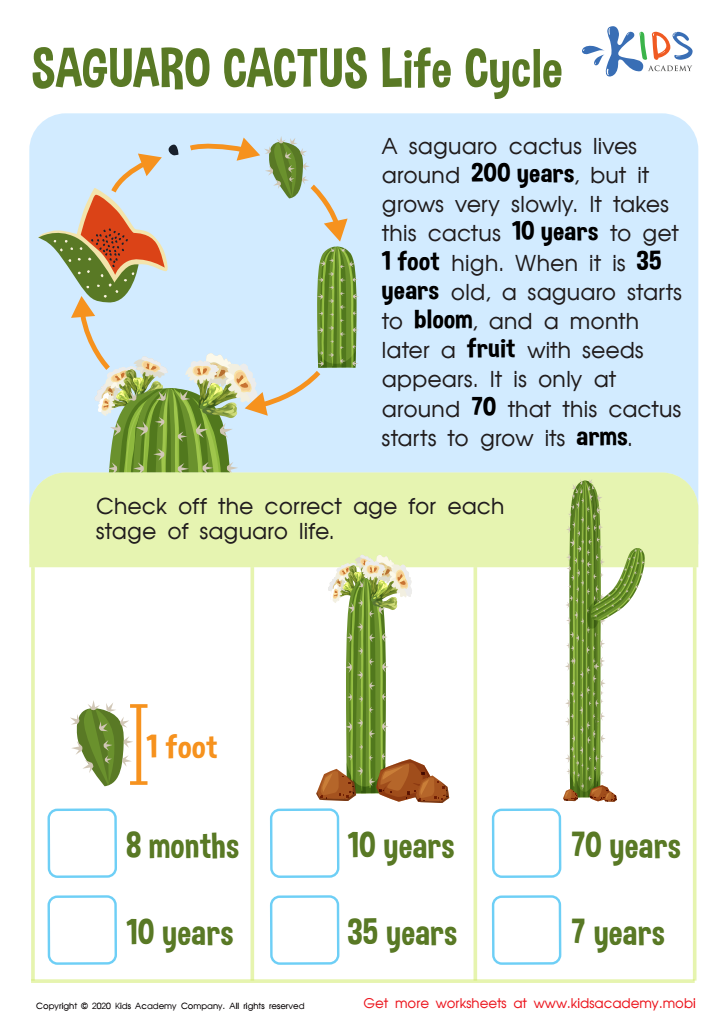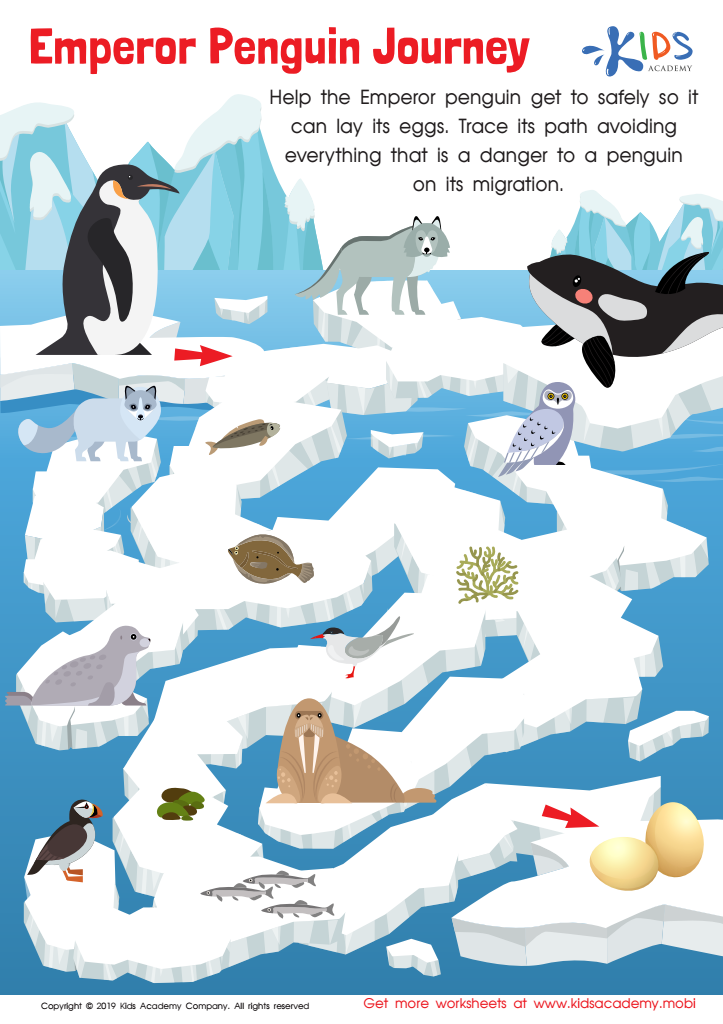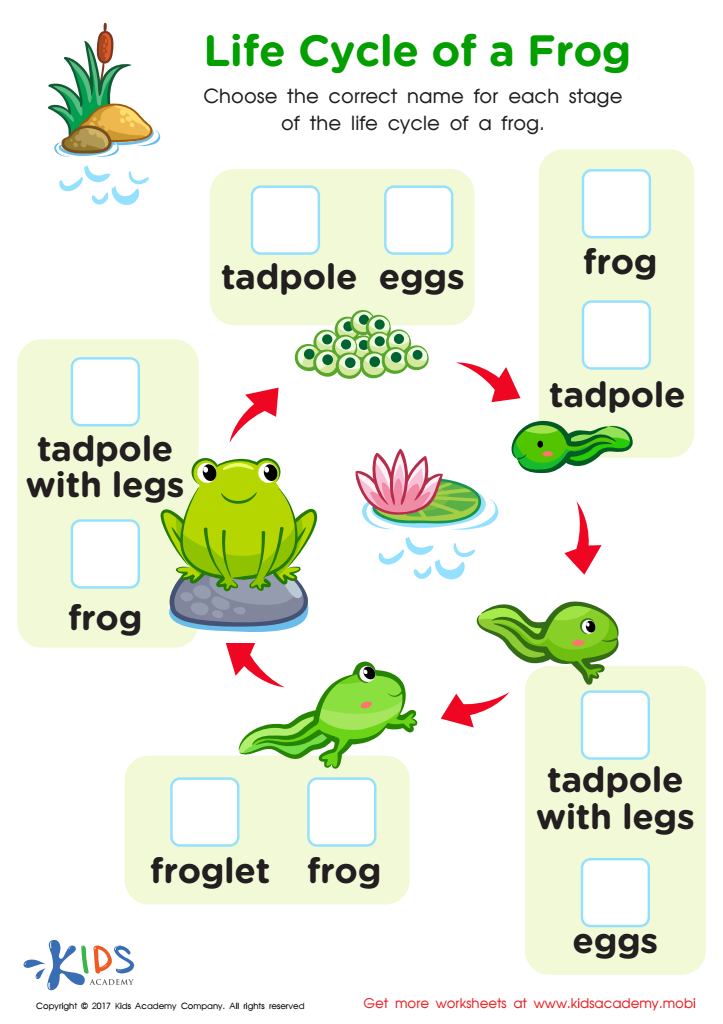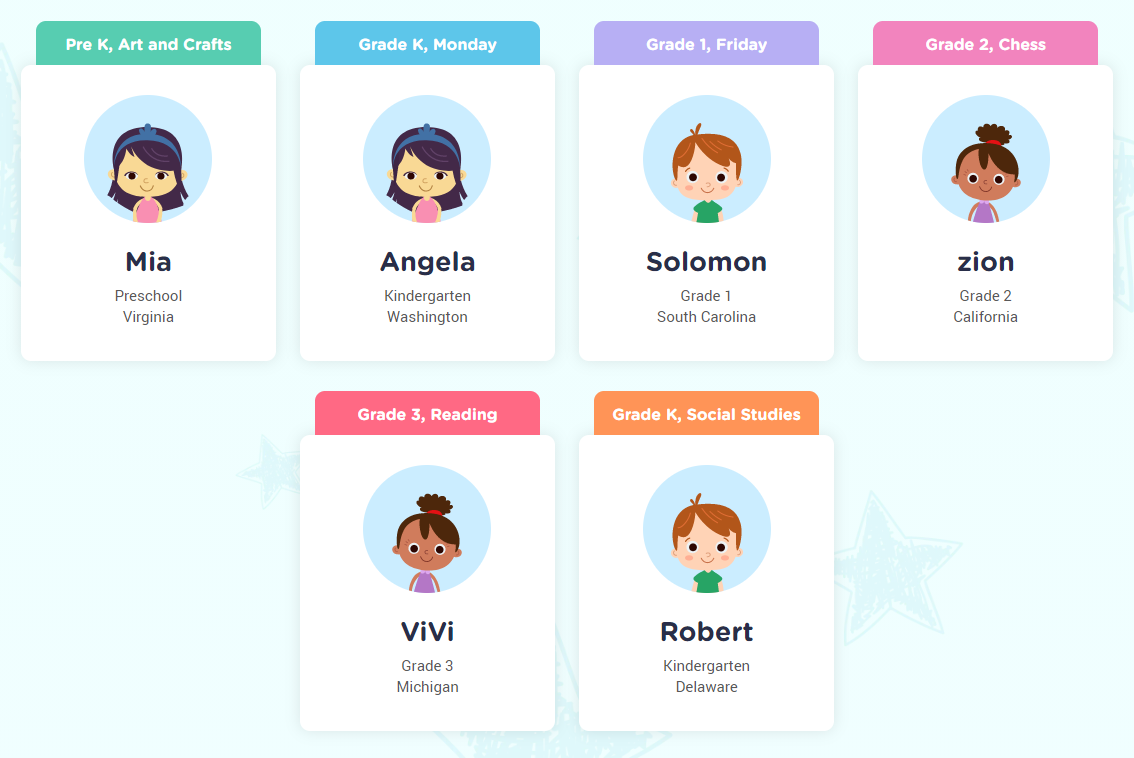Understanding life cycles Normal Worksheets for Ages 3-6
3 filtered results
-
From - To
Discover the wonders of nature with our "Understanding Life Cycles" Normal Worksheets designed for ages 3-6. These engaging worksheets help young learners explore and grasp the life cycles of various plants and animals. Each activity is beautifully illustrated and easy to follow, promoting curiosity and expanding knowledge. Perfect for both classroom and home use, these worksheets support foundational science skills in a fun and interactive way. Watch your children delight in learning as they trace, color, and match different stages of life, fostering a love for biology that will last a lifetime.


Saguaro Cactus Life Cycle Worksheet


Emperor Penguin Journey Worksheet


Life Cycle Frog Printable
Understanding life cycles is crucial for young children aged 3-6 as it lays the foundation for comprehending broader scientific concepts and fostering a connection with nature. At this developmental stage, children are naturally curious and eager to explore their surroundings. Introducing them to life cycles—such as those of plants, butterflies, or frogs—can enhance their observational skills and ignite a sense of wonder about the natural world.
For parents and teachers, focusing on life cycles helps stimulate cognitive development and encourages critical thinking. Children learn to sequence events and recognize patterns, which are fundamental skills for problem-solving and logical reasoning. Additionally, witnessing the various stages of life cycles aids in developing patience and understanding the concept of change and growth over time.
Moreover, incorporating life cycles into early education can instill a sense of responsibility and empathy toward living things. When children understand how plants and animals grow and develop, they are more likely to appreciate and respect the ecosystem. This early environmental awareness can foster sustainable habits and a lifelong appreciation for nature.
In essence, understanding life cycles equips young children with valuable scientific knowledge and essential life skills, while also promoting emotional and social growth through a deeper connection with their environment.
 Assign to My Students
Assign to My Students



















